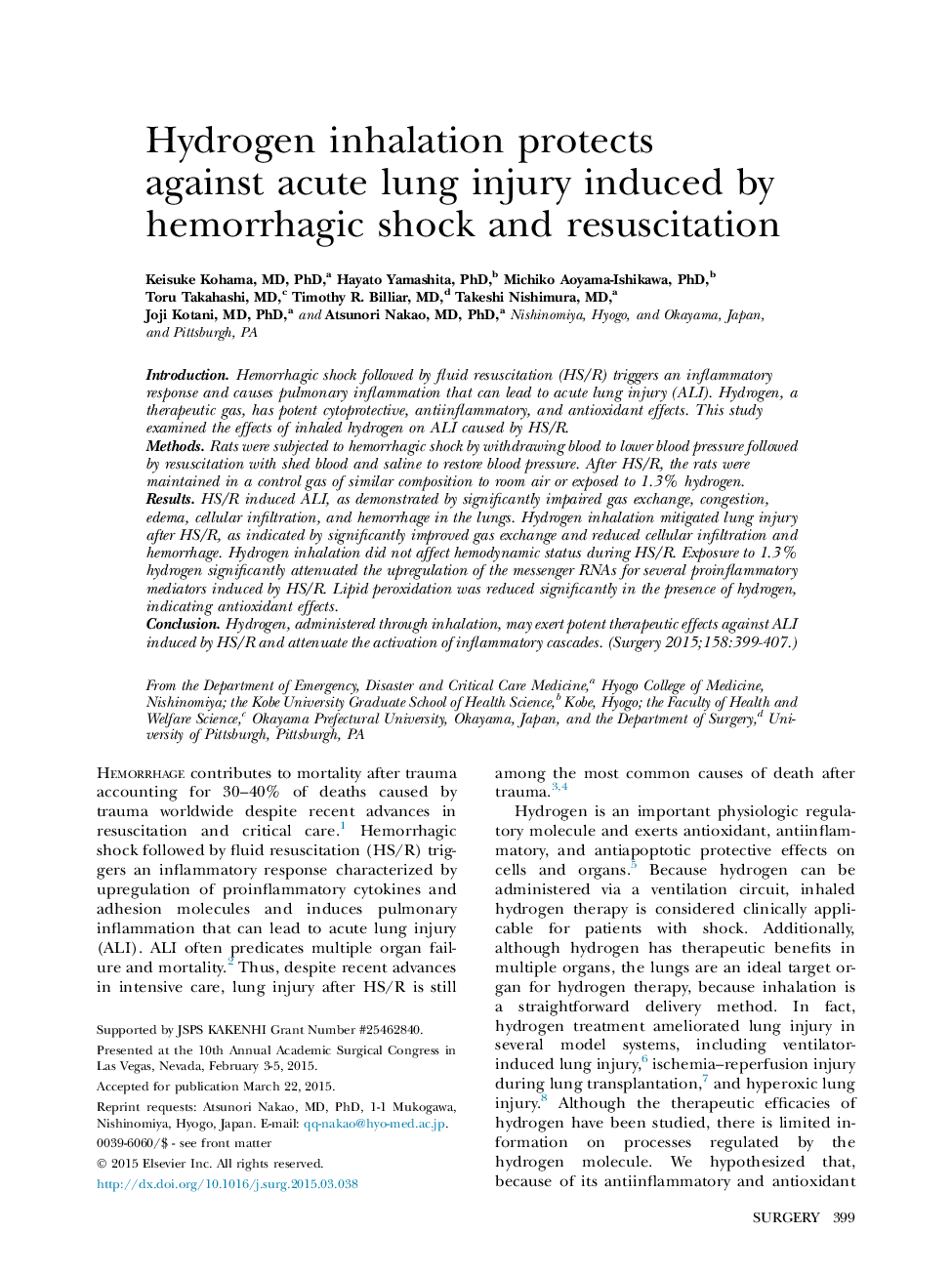| Article ID | Journal | Published Year | Pages | File Type |
|---|---|---|---|---|
| 4307008 | Surgery | 2015 | 9 Pages |
IntroductionHemorrhagic shock followed by fluid resuscitation (HS/R) triggers an inflammatory response and causes pulmonary inflammation that can lead to acute lung injury (ALI). Hydrogen, a therapeutic gas, has potent cytoprotective, antiinflammatory, and antioxidant effects. This study examined the effects of inhaled hydrogen on ALI caused by HS/R.MethodsRats were subjected to hemorrhagic shock by withdrawing blood to lower blood pressure followed by resuscitation with shed blood and saline to restore blood pressure. After HS/R, the rats were maintained in a control gas of similar composition to room air or exposed to 1.3% hydrogen.ResultsHS/R induced ALI, as demonstrated by significantly impaired gas exchange, congestion, edema, cellular infiltration, and hemorrhage in the lungs. Hydrogen inhalation mitigated lung injury after HS/R, as indicated by significantly improved gas exchange and reduced cellular infiltration and hemorrhage. Hydrogen inhalation did not affect hemodynamic status during HS/R. Exposure to 1.3% hydrogen significantly attenuated the upregulation of the messenger RNAs for several proinflammatory mediators induced by HS/R. Lipid peroxidation was reduced significantly in the presence of hydrogen, indicating antioxidant effects.ConclusionHydrogen, administered through inhalation, may exert potent therapeutic effects against ALI induced by HS/R and attenuate the activation of inflammatory cascades.
